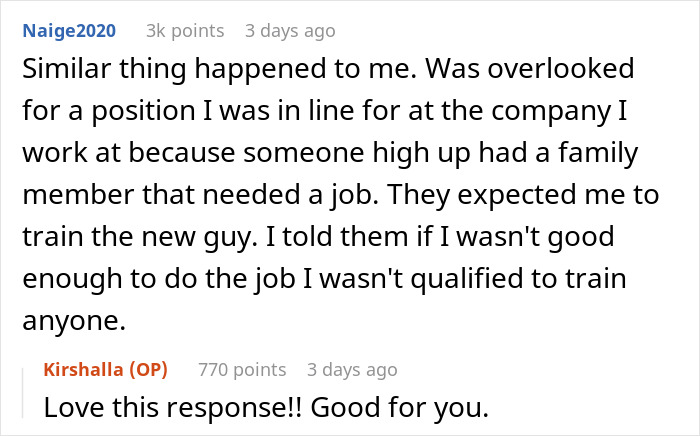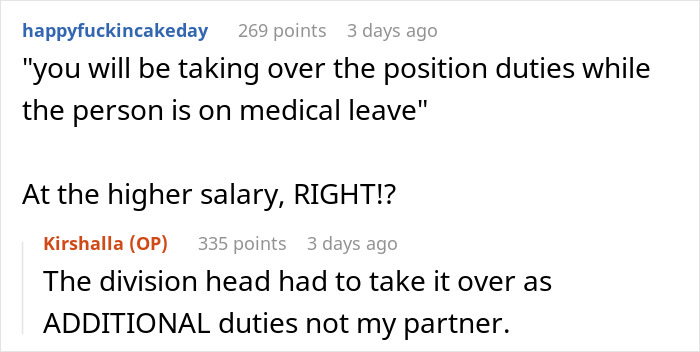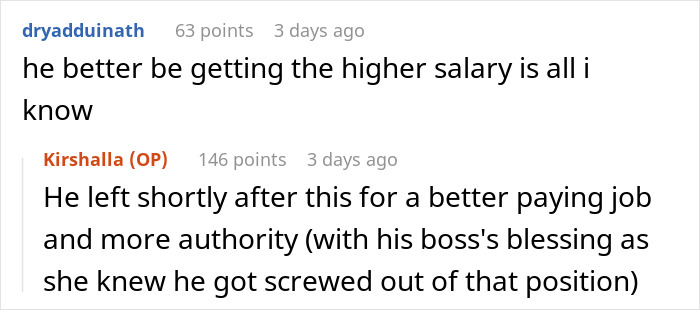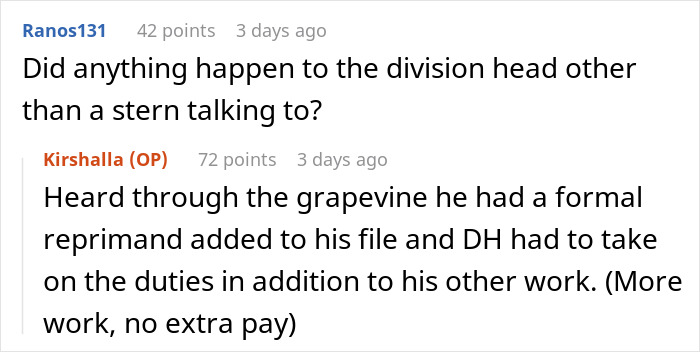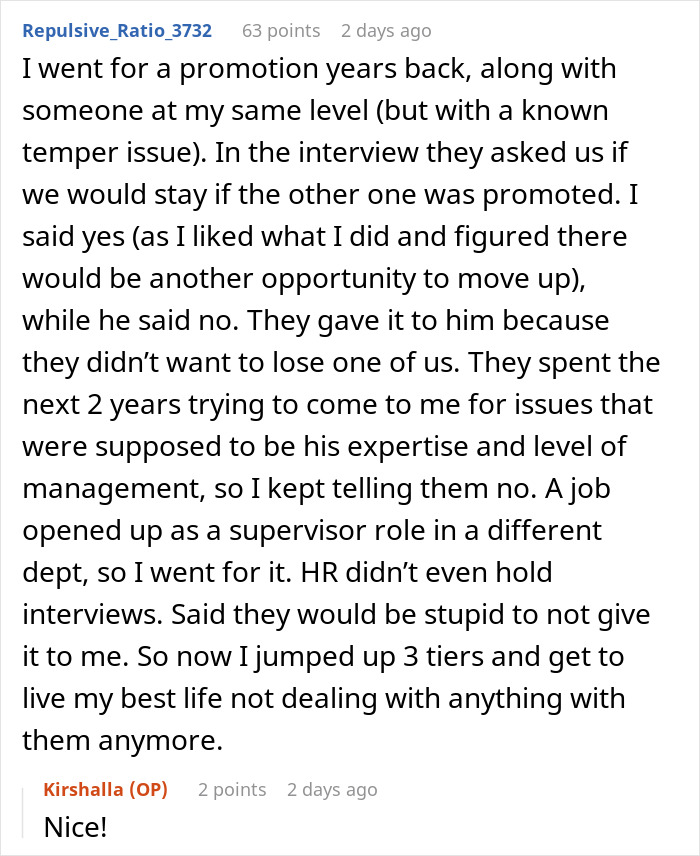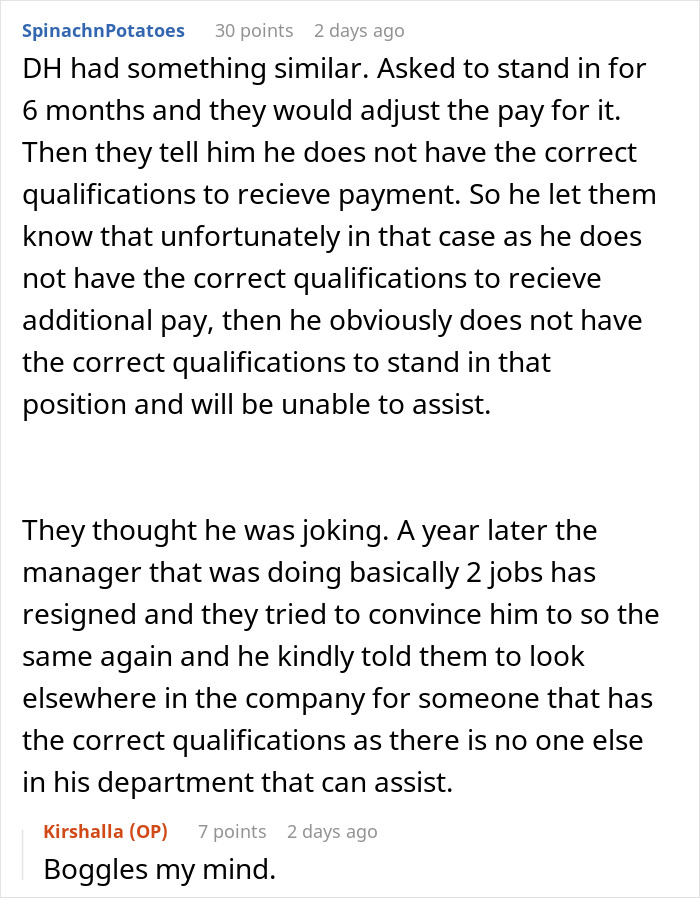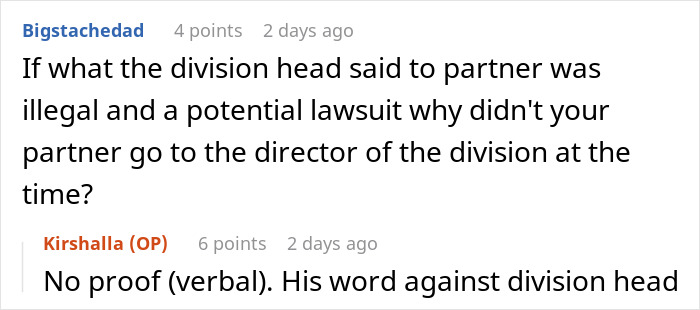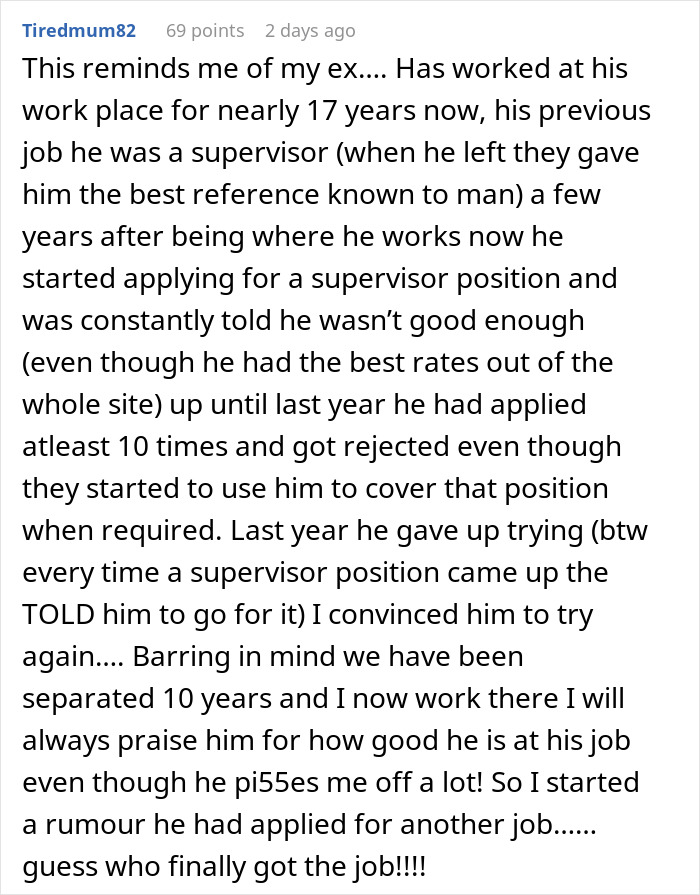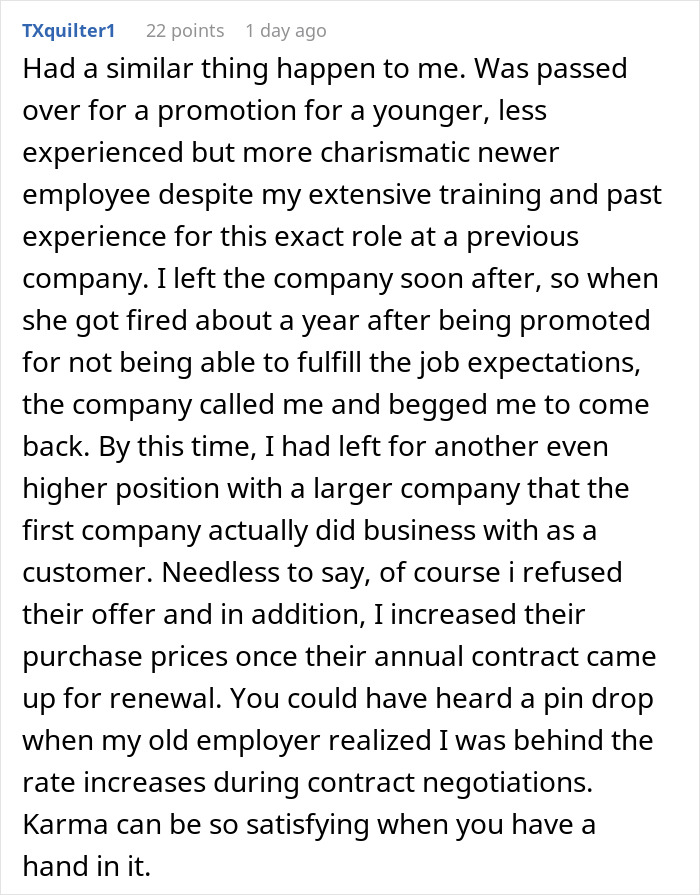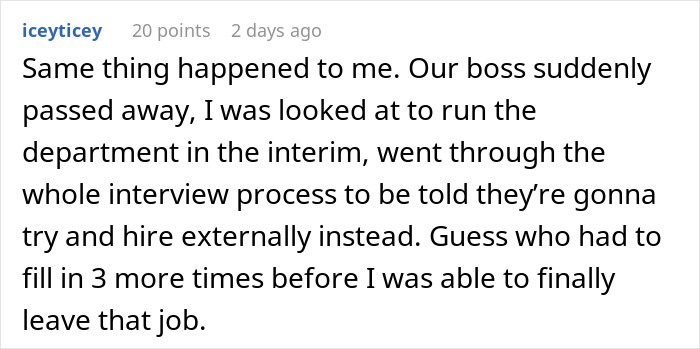Sometimes it feels like supportive superiors are made-up characters only found in fairytales, because of how seemingly rare they are.
Unfortunately for this redditor’s partner, his division head was no unicorn either. When the employee was considering seeking a promotion, the superior told him to not even bother applying as he wasn’t qualified. However, he soon changed his mind—when it became convenient—but all he got was petty revenge.
Troublesome superiors can make life at work needlessly difficult

Image credits: Yan Krukau / pexels (not the actual photo)
This employee was told by his superior that he wasn’t qualified for a position, until it was no longer convenient for him

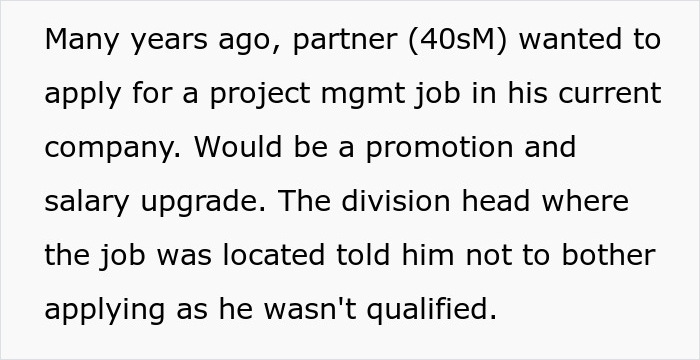
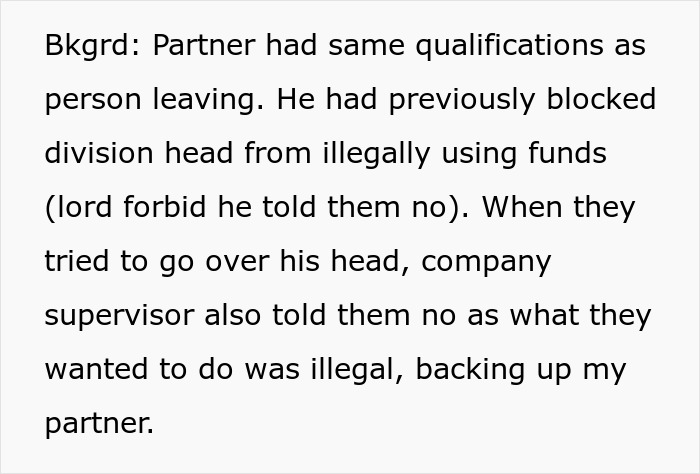
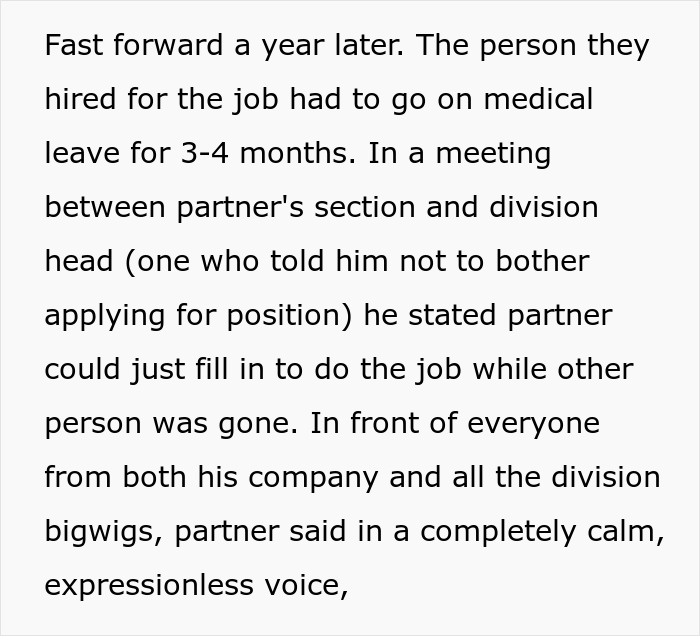
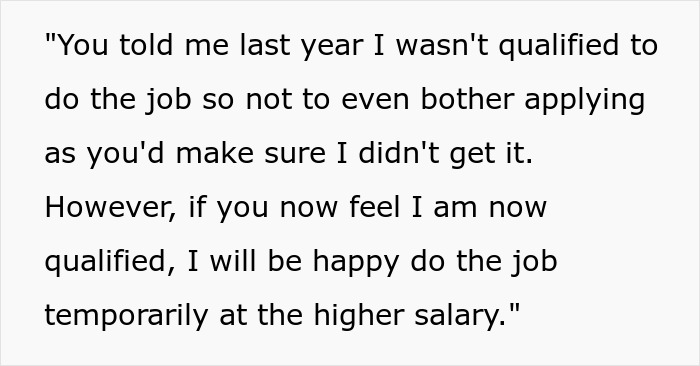

Image credits: cottonbro studio / pexels (not the actual photo)
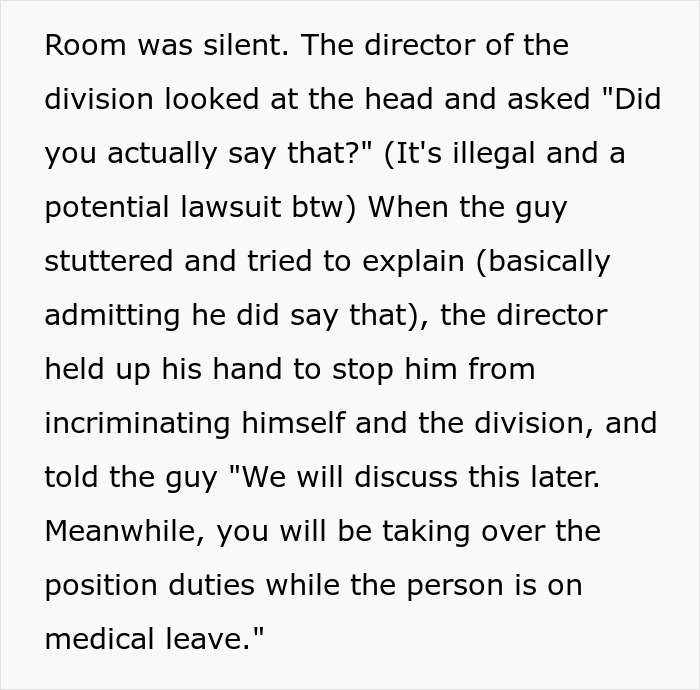
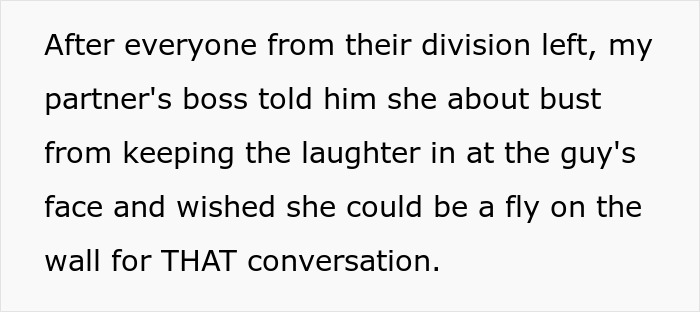
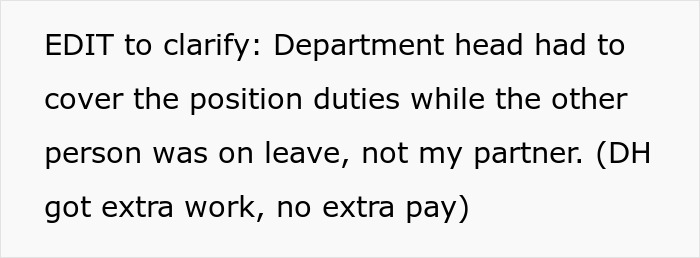
Image credits: Kirshalla
A supportive environment at work can alleviate certain job stressors
No matter the job, a supportive environment can make it easier to handle. Unfortunately, such an environment is not the standard at all workplaces, meaning that a number of employed individuals might feel unappreciated or even stressed at work.
According to Centers For Disease Control and Prevention (CDC), supportive leaders drive organizational improvements that can positively influence employee health and well-being. They can help eradicate common job stressors, such as lack of supervisor support, low job control, task overload, or interpersonal conflict, which are known to have detrimental effects on employee well-being and their ability to function effectively in and out of the workplace.
CDC revealed that job stressors are detrimental not only to the employee, but to the economy, too. The global cost of health consequences of job stress is estimated to be somewhere between $221 million to $187 billion every year, with 70-90% of the costs stemming from productivity loss.
Bearing all the detrimental effects in mind, it’s no surprise that support from higher ups at work is becoming more and more important. A survey from 2022 found that as much as 77% of employees are placing increased importance on support from their superiors.
Lack of support might negatively influence the level of employee engagement at a workplace
Another reason to make sure that the employees feel supported is employee engagement—the level of how enthusiastic or dedicated an employee feels about his job—the lack of which can lead to a higher turnover rate, loss of productivity, or even absenteeism.
According to Team Stage, only about 15% of employed individuals worldwide feel engaged at work; to make matters worse, nearly 40% feel unappreciated. Discouraging employees from striving for better results or higher positions, as the division head did with the OP’s partner, is unlikely to boost employee engagement or make them feel supported at work.
Another reason discouraging employed individuals is unnecessary at best is because they sometimes tend to do it themselves. Harvard Business Review pointed out that people, especially women, often choose not to apply unless they meet 100% of the requirements (men seem to apply if they meet at least 60%). That’s likely to be one of the reasons why women are reportedly 16% less likely than men to apply to a job after viewing the application and apply to 20% fewer jobs than their male counterparts do.
In the OP’s partner’s case, it wasn’t a random job application he was considering applying to, it was a promotion within the company, which might have resulted in a great collaboration; but since the division head wasn’t supportive of the idea, it led to petty revenge instead.
Fellow netizens shared their thoughts on the matter, the OP replied to some of them
